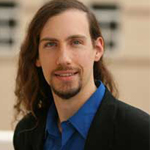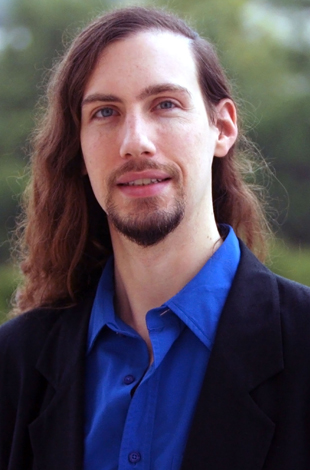Can we plan for disasters?

Can we plan for disasters?
- August 31, 2007
 The Oklahoma City bombing of 1995. The Sept. 11 attacks on the World Trade Center.
The devastation and aftermath of Hurricane Katrina. Each tragic event serves as an
unfortunate, but constant reminder that when disasters strike, even the most comprehensive,
well-laid plans involve unforeseeable, unexpected challenges.
The Oklahoma City bombing of 1995. The Sept. 11 attacks on the World Trade Center.
The devastation and aftermath of Hurricane Katrina. Each tragic event serves as an
unfortunate, but constant reminder that when disasters strike, even the most comprehensive,
well-laid plans involve unforeseeable, unexpected challenges.
The key to dealing with the last minute challenges inherently linked with large-scale disasters, says sociology professor Carter Butts, is effective improvisation. “The ability of people to make split second decisions and creatively adapt to their surroundings in critical situations has an enormous bearing on the success of post-disaster operations,” he says. “At the same time, a well developed emergency response plan must factor in this need for improvisation and flexibility to allow people to react when challenges arise.”
Butts is one of a strong group of faculty experts at UC Irvine who perform cutting edge research in the field of quantitative network analysis and spatial mapping. With a recently awarded three year grant from the National Science Foundation, he is leading the UC Irvine component of a comprehensive study focused on the role of improvisation in emergency situations and the communication networks within which critical decisions are made. The goal: to improve the ability of communities and organizations to plan for, adapt to and learn from disasters.
Using police reports, radio communication transcripts, interviews and dispatch logs, the team of researchers is reconstructing the events that unfolded immediately following the 1995 bombing of the Alfred P. Murrah Federal Building in Oklahoma City and the 2001 attacks on the World Trade Center. The data collected will then be used to develop an overall, global picture of the events’ communication networks.
By piecing together the sequence of communication activities that took place in each case, researchers hope to gain a better understanding of who talked with whom, who played a coordinating role and how everything came together – information which is extremely valuable in the development of future crisis planning and first responder training.
“We know that disasters are an inevitable fact of life, whether they come in the form of a storm, a fire, a building collapsing or something else,” says Butts. “Studying how people have come together in past emergency situations gives us insight into a wealth of knowledge that will be valuable in the development of future crisis plans.”
The team’s preliminary findings are surprising, he notes. In the case of the Sept. 11 attacks, elevator operators and maintenance workers – individuals who hadn’t received formal emergency response training – became lead communication coordinators. “Who you were when you went in to work that day didn’t seem to matter after tragedy struck,” he says.
When applied to the design of usability standards in emergency response equipment, this information becomes quite useful. Butts explains: “We shouldn’t assume to know who will be operating emergency response equipment,” making the case for standard, less customized equipment that will allow for quick adaptation in times of need by multiple end users.
Understanding how and why select individuals became lead coordinators in each situation will also be useful for future organizational training in terms of improvisation skills development to better equip employees with the creative and critical thinking skills necessary to act in times of crisis – an outcome that could ultimately save lives.
“It’s very rewarding to have the opportunity to put our knowledge of basic science to use in an area with such a visible, concrete payoff,” says Butts. Arriving on campus in 2002, Butts has been involved in a number of emergency response-related studies including an on-going collaborative study with Calit2 in which researchers are examining communication breakdowns in past disasters in order to prevent future failures.
Share on:




connect with us